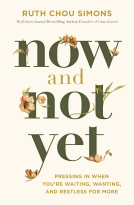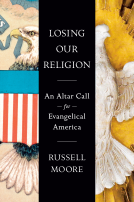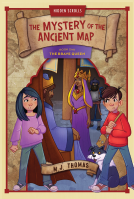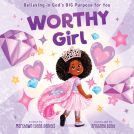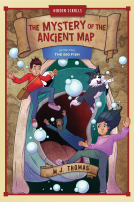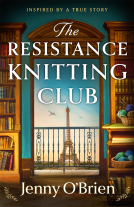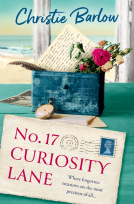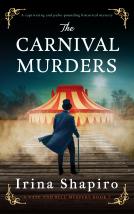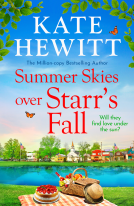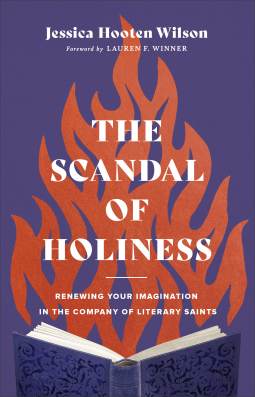
The Scandal of Holiness
Renewing Your Imagination in the Company of Literary Saints
by Jessica Hooten Wilson
This title was previously available on NetGalley and is now archived.
Send NetGalley books directly to your Kindle or Kindle app
1
To read on a Kindle or Kindle app, please add kindle@netgalley.com as an approved email address to receive files in your Amazon account. Click here for step-by-step instructions.
2
Also find your Kindle email address within your Amazon account, and enter it here.
Pub Date Mar 29 2022 | Archive Date Apr 29 2022
Baker Academic & Brazos Press | Brazos Press
Talking about this book? Use #TheScandalofHoliness #NetGalley. More hashtag tips!
Description
Midwest Book Review 2023 Silver Book Award (Nonfiction - Religion/Philosophy)
How do we become better people? Initiatives such as New Year's resolutions, vision boards, thirty-day plans, and self-help books often fail to compel us to live differently. We settle for small goals--frugal spending, less yelling at the kids, more time at the gym--but we are called to something far greater. We are created to be holy.
Award-winning author Jessica Hooten Wilson explains that learning to hear the call of holiness requires cultivating a new imagination--one rooted in the act of reading. Learning to read with eyes attuned to the saints who populate great works of literature moves us toward holiness, where God opens up a way of living that extends far beyond what we can conjure for ourselves. Literature has the power to show us what a holy life looks like, and these depictions often scandalize even as they shape our imagination. As such, careful reading becomes a sort of countercultural spiritual discipline.
The book includes devotionals, prayers, wisdom from the saints, and more to help individuals and groups cultivate a saintly imagination. Foreword by Lauren F. Winner.
Advance Praise
“This book will spur you to read more and will show you how to do it. Jessica Hooten Wilson knows the difference between being well-read and being holy as she calls us to strive for holiness even in our reading. This book illustrates how good literature can stir the imagination and how the imagination can stir us toward holiness. The voice of this book is not of an English teacher asking if you have done your reading but is instead the voice of a smart and humble friend who says to you: ‘Let me introduce you to some friends who know exactly what you’re going through right now.’”—Russell Moore, Christianity Today
“In this impassioned defense of the value of stories, Wilson invites us to delve into our literary heritage with fresh eyes and eager hearts. She guides the reader through an impressive array of diverse literary artists, connecting their works to the universal call to all Christians to become saints. Her defense of the centrality of imagination in the moral and spiritual life is both convincing and inspiring.”—Jennifer A. Frey, associate professor of philosophy, University of South Carolina
“How I needed this book! Jessica Hooten Wilson has provided a literary and spiritual feast that will take readers back to the enchanted wisdom of childhood while revitalizing their commitment to inhabit worlds of sanctity, magnanimity, and love. A timely inspiration in an age of distraction and de-forming temptations, with a wonderful reading list to boot.”—Anne Snyder, editor-in-chief, Comment magazine
Available Editions
| EDITION | Other Format |
| ISBN | 9781587435249 |
| PRICE | $24.99 (USD) |
| PAGES | 240 |
Average rating from 8 members
Featured Reviews
I love the idea of this book, but in practice found it frequently over my head. If you love thinking deeply about literature and faith, then this book is worth your time. Take my criticism of the book with a heavy grain of salt. It is likely that I simply didn't "get it," or was out of my depth academically.
The primary idea is that we can learn more about holiness by reading about Christians in literature. These depictions of saints can improve our imaginations and give us new ideas and ways of thinking about the Christian life. This description is what drew me to the book.
Each chapter focuses on an idea (Holy Foolishness, death, suffering, liberation, motherhood, etc) and one primary novel. The novels are then summarized in great detail. This was helpful since every story was unfamiliar to me personally, but they seemed to drag on.
The book will certainly stretch your imagination of what holiness can look like. The stories are chosen strategically and all follow rather unconventional saints. I left each chapter behind thinking more deeply about not just the subject, but the books mentioned as well.
The chapters all have a quote, devotional thought, questions, and more suggested reading. I typically skim past these, but these were profound and helpful.
This is a book that demands to be read slowly. It would even be enriched by reading the books mentioned in between each chapter. I found myself reading this book much slower than I would read normally and still struggled to follow along.
I would recommend this book for intermediate/serious readers. I like to think of myself as well-read, but I had never heard of most of the novels mentioned in the book.
If you are not well versed in more "serious" literary fiction, then I might recommend starting with Karen Swallow Prior's "On Reading Well" instead.
I received a copy of this book from NetGalley.
The title is a bit of a misnomer - this book, with amazing breadth, takes us through the stars of holiness and their works and publications. This isn’t a book for the feint hearted and there needs to be a good depth of literature read to feel at ease in the text. Tolkien, Anne Frank, CS Lewis to name just a few. There is also an excellent reference to the old and New Testament jumping between modern fiction, analysis and theology in each chapter. The guided reading at the end of each chapter was not simple nor were the questions and prompts. I love the idea of the book, and it is beautifully written, I just felt inadequate when confronted with the huge number of long references and analogies that were assumed.
The author presents a powerful argument, largely from her own reading experience, of how reading classical fiction (in particular but really a variety of fiction) can improve our minds. She convinced me.
A book about books makes for dangerous reading material if you happen to suffer from a perpetually growing list of books you plan to read. Even so, The Scandal of Holiness by Jessica Hooten Wilson was well worth the risk. Writing on eight themes from the following life, Wilson employs characters from fiction to shed an angle of light on the nature of holiness and a life lived consciously in the presence of God.
Since I have already been catechized by the Reverend John Ames from Marilynne Robinson’s fiction and by various residents of Wendell Berry’s Port William membership, I am eager to have my imagination expanded again in new ways. How wonderful that sanctification can be encouraged by the good, the true, and the beautiful sifted from 20th century novels!
Wilson mingles the more familiar names of Flannery O’Connor, C.S. Lewis, and Walter Wangerin, Jr. with the less familiar work of Eugene Vodolazkin, Sigrid Undset, and George Bernanos (and many more!). Each chapter ends with a brief excerpt, a related scripture verse, a quotation from a saint, and a prayer, underscoring the author’s conviction that our reading choices are life-altering, for “a novel is… a way to travel through the human heart.”
I have been formed by a love for fictional characters who somehow speak more wisdom than they realize and by authors whose view of the world made me want to peer through the same lens they were using. By reading well, we become better equipped to read more skillfully our own narrative arc, to ask ourselves the probing questions that reveal our motives and sift our hypocrisy as we trust for grace to live well.
Many thanks to Brazos Press and Net Galley for providing a copy of this book to facilitate my review, which, of course, is offered freely and with honesty.
 Rachel F, Educator
Rachel F, Educator
Wilson's Scandal of Holiness is a breath of fresh air. Each chapter dwells on an aspect of holiness and how that relates to thr chosen novel. Some I had read before, and the others I have placed on my to read list. Her analysis encouraged not only my faith, but also my love of fiction. If I had to describe her book in one sentence I would say that Scandal of Holiness is a literary devotional.
Readers who liked this book also liked:
Jenny O'Brien
General Fiction (Adult), Historical Fiction, Women's Fiction
Jane Lovering
General Fiction (Adult), Romance, Women's Fiction
